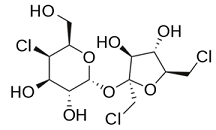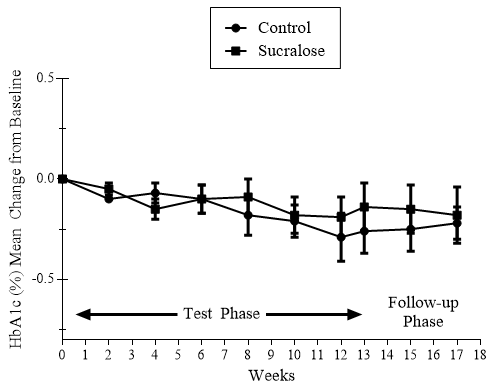P608
Artificial sweeteners have been used extensively in the last 20 years. However, long term effects of these sweeteners on human health are debated. Past studies have suggested evidence that regular consumption of sweeteners can lead to increased risk of cancer and obesity. In a recent study, scientists examined the effect of three different sweeteners on human metabolism.
a

Figure 1. Sucralose structure.
a
In the first experiment, a group of 32 adult males were subjected to a longitudinal study of 18 weeks in which one group was given a sucralose-containing diet containing an average of 665 mg sucralose per day. The other group was given a control diet containing no sucralose. Patients were 48 ± 1.15 years of age and had an average weight of 93 ± 2.85 kg. Glycated hemoglobin (HbA1c protein) was measured over time.
a

Figure 2. Glycated hemoglobin change over time in patients.
a
In the second experiment, researchers examined baseline glucose levels by looking at fasting glucose blood concentration. Patients were asked to refrain from eating for 24 hours prior to a blood sample being drawn, where C-peptide (a metabolite from producing insulin) and blood glucose were measured.
a
a

a
Table 1. Blood glucose and C-peptide concentrations in control and sucralose subjects.
.
Find an error? Take a screenshot, email it to us at error@mytestingsolution.com, and we’ll send you $3!
